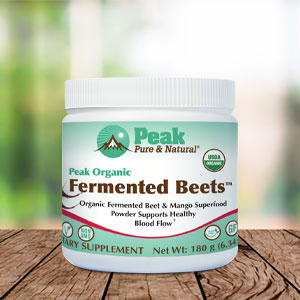I hate to sound like a broken record, but lead is a big problem.
And we’re way beyond paint, here.
Every few months, it seems we get warnings about lead-tainted spices, lead hiding in dishware and lead-laden air pollution.
The American Heart Association says heavy metals contribute to heart disease by causing oxidative stress, chronic inflammation, endothelial dysfunction, high cholesterol, high blood pressure, and more — and lead is among the worst.
Today’s warning is especially egregious… because it’s hidden in a wildly popular “health” craze that’s exposing millions of Americans to as much as 10 times the level of lead that some experts say is safe to consume in one day.
And they get it in one serving…
Muscle gains at a dangerous price
As far back as 2012, when supplementing protein started to become popular among fitness enthusiasts, a Consumer Reports investigation identified some problems…
Protein powders contained levels of arsenic, cadmium, lead, and mercury in the low to moderate range. But consuming three servings daily could easily exceed the maximum limits for those heavy metals.
Despite sounding the alarm back then, a new Consumer Reports investigation reveals protein powders still carry troubling levels of toxic heavy metals.
Almost all of the plant-based products CR tested had elevated lead levels, but some were particularly concerning…
- Two had so much lead that CR’s experts caution against using them at all. A single serving of these protein powders contained between 1,200 and 1,600% of CR’s level of concern for lead, which is 0.5 micrograms per day.
- Two others had between 400 and 600% of that level per daily serving. CR experts recommend limiting these to once a week.
- The lead levels in plant-based products were, on average, nine times the amount found in those made with dairy proteins like whey, and twice as great as those in beef-based ones.
- Dairy-based protein powders and shakes generally had the lowest amounts of lead. However, half of the products tested still had high enough levels of contamination that CR’s experts advise against daily use.
“It’s concerning that these results are even worse than the last time we tested,” said Tunde Akinleye, the CR food safety researcher who led the testing project.
An example is Naked Nutrition’s Vegan Mass Gainer powder, the product with the highest lead levels. It had nearly twice as much lead per serving as the worst product CR analyzed in 2010.
People supplement protein for different reasons, but more often for fitness, muscle gain, or to make up for a deficiency in their diets. According to Akinleye, “For many people, there’s more to lose than you’re gaining.”
He suggests that anyone supplementing protein regularly should reduce their consumption.
Protein: the safer way
We know that lead can build up in the body over time. The way protein shakes are used makes them especially harmful in this respect.
For example, not too long ago, heavy metals were found in dark chocolate. But for most, a chocolate bar is an occasional indulgence. People who consume protein powders and shakes are usually committed to a goal—like muscle gain — and make a habit of consuming these products daily, sometimes multiple times a day.
The Institute of Medicine has provided some average guidelines stating that women need only around 46 grams of protein, while men need around 56 grams per day.
Just 4 ounces of lean ground beef provides 28 grams of protein, while 4 ounces of chicken breast contains 36 grams of protein, and 5 ounces of salmon provides about 28 grams of dietary protein.
You can easily get plenty of protein through plant-based sources, too. Beans contain about 15 grams per cup, nuts deliver about 5 grams per ounce and vegetables about 5 grams per cup, while whole grains are somewhat closer to 10 grams per cup.
For muscle gain, a man who weighs 175 pounds only needs about 125 grams of protein a day. A man or woman looking to gain muscle who weighs less or more can calculate their need based on .7 grams of protein per pound of body weight.
So, you can see how easy it is to get to adequate — or even excess — levels through a whole foods diet.
But if you just cannot pass up the ease of protein powders and shakes, at least avoid the plant-based products, which were found to contain up to nine times the lead found in products made with dairy proteins.
Should you be concerned about the buildup of lead you could be carrying around in your body if you’ve been supplementing your protein with these products?
Considering what we know about the impact of lead and other heavy metals on heart health, you should consider chelation — a process that helps your body bind to and remove lead, mercury and the like from your body. You can read here about natural heavy metal chelators that can help with that process.
Sources:
Protein Powders and Shakes Contain High Levels of Lead — Consumerreports.org
Read full article here





